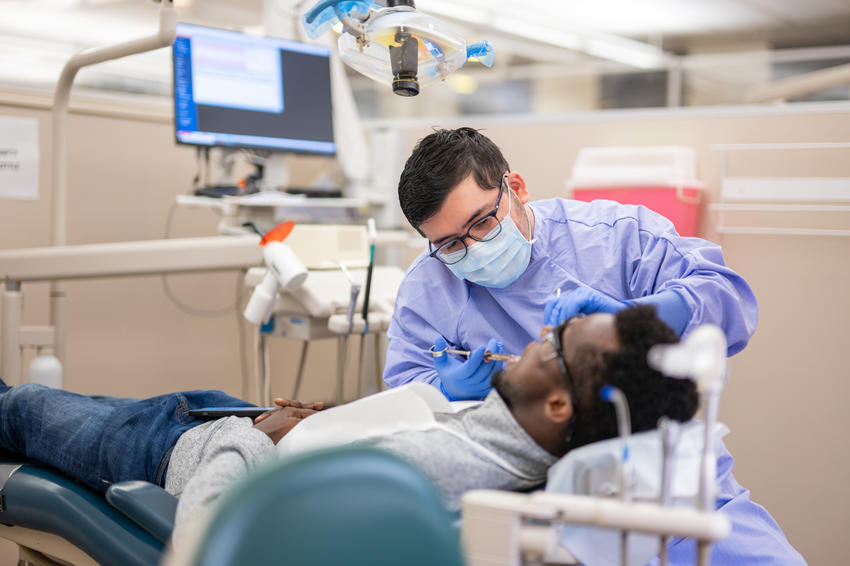National Gum Care Month: A Conversation with Daniel Skaar

September marks National Gum Care Month—dedicated to educating individuals about the dangers of gum disease and the importance of taking good care of this vital part of the mouth.
Daniel Skaar, DDS, MBA, MS, associate professor and director of the Division of Periodontology, knows the importance of gum care and health. In fact, he has dedicated his work life to it. We spoke with Skaar to better understand the discipline of periodontology, and how we can best take care of the structures that support our teeth.
What is periodontology?
Periodontology or periodontics can be broadly thought of as the oral health care discipline involving the supporting structures of the teeth, and the diseases and conditions that affect them. These supporting structures or tissues, often referred to as the periodontium, include the gingiva, periodontal ligament, tooth root cementum and alveolar bone around teeth.
The gingiva, or gum tissue, is a type of firm oral mucosa that covers the jaw bones and surrounds the teeth. The roots of teeth are covered by a mineralized layer referred to as cementum, and the periodontal ligament consists of tissue fibers that connect teeth to the alveolar or jaw bone. Periodontal diseases are typically associated with bacterial inflammation and infection of the gum tissue and bone supporting teeth.
Why is gum health important? How does gum health impact oral health overall?
Periodontal or gum disease is one of the most common oral diseases. Almost 50% of U.S. adults aged 30 years and older have been estimated to have some form of periodontal disease.
Periodontal diseases can cause bothersome signs and symptoms including bad breath, red and swollen gums, bleeding gums, pain with chewing and loose teeth. Periodontal disease, if left untreated, is a leading cause of tooth loss. Maintaining good periodontal or gum health can prevent or reduce the untoward effects of periodontal diseases.
How do the gums affect other parts of the body?
The notion that oral health has an effect on other organs and systemic diseases has been proposed since at least the late 1800s. In recent years, the effect of periodontal disease on systemic health has received considerable attention. A number of studies have reported associations between periodontal disease (e.g. chronic periodontitis) and systemic diseases such as atherosclerotic heart disease, diabetes, some types of cancer, respiratory diseases, rheumatoid arthritis, Alzheimer’s disease and adverse pregnancy outcomes. Further studies are needed to conclusively demonstrate a causal relationship.
What are some simple ways to maintain good gum health?
The maintenance of good oral health, including periodontal or gum health, should focus on routine effective preventive and maintenance care.
This includes effective oral hygiene and regular dental visits with professional prophylaxis or cleaning. Important oral hygiene measures include daily brushing (after meals and at bedtime), and flossing at least once daily. Brushing and flossing help remove food debris and dental plaque on and between teeth and gum tissues. Rinsing with mouthwashes can supplement brushing and flossing by helping further remove food debris and plaque which is the sticky film of bacteria that continually forms on teeth.
It is important to remember that, for some people, daily oral hygiene practices and routine dental checkups may not be able to maintain gum health, and additional therapies may need to be considered.